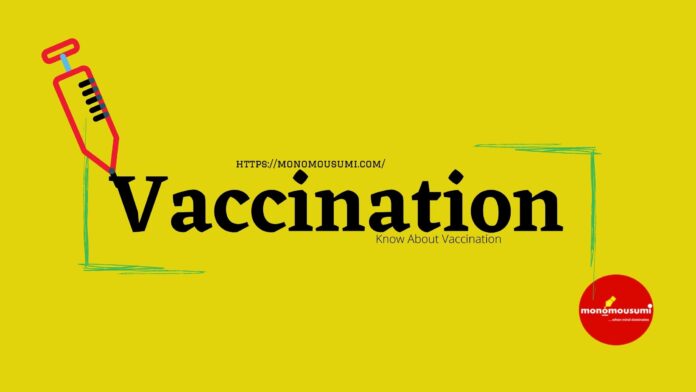Vaccination is one of the inventions that has completely changed and revolutionised us human beings and our lifestyles. As we struggle our way through the Covid-19 pandemic, impatiently waiting for a vaccine, it is worth asking all sorts of questions regarding the invention of vaccinations and understanding the extraordinary history behind them.
What is a vaccination?
To help the immune system develop protection from a disease, vaccines are administered into the body. This is known as the process of vaccination. Vaccines contain microorganisms or virus in a weakened, live or killed state. They stimulate the adaptive immunity of the body and also help prevent falling sick due to an infectious disease. Variolae vaccinae (smallpox of the cow) is the Latin term from which the words vaccine and vaccination were derived.
History of Vaccinations
Small pox was a disease that had claimed more than 500 million lives. Also it was the first disease for which a vaccine was created. Similar means to vaccinations have been used more than a thousand years ago in China and India. The first recorded usage of variolation was from the 16th century in China. Even in American colonies from Africa, variolation was introduced as a protection against small pox in Boston. Variolation was a method of inoculation. It was first used to immunize people against the infection of smallpox (also known as variola) with material taken from a patient or a recently variolated individual, hoping that a mild, but protective, infection would be the result. A set of methods of artificially inducing immunity for prevention against various infectious diseases is known as inoculation. The terms inoculation and vaccination are often used synonymously.
Who is Edward Jenner?
In 1796, the world’s first vaccine, the small pox vaccine was invented by an English physician and scientist Edward Jenner from Berkeley. In 1798, he was conferred with the title of father of immunology.
How was the vaccination invented?
In 1768, an English physician named John Fewster had the realisation that a person becomes immune to small pox if he has prior been infected with cowpox. From 1770 to 1780 around 6 investigators had successfully tested a cow pox vaccine against small pox, but it was not until Edward Jenner’s procedure that it became widespread. The common fall of events observed by the investigators were that the milkmaids were generally immune to small pox and so he postulated the pus from the blisters that were developed by cowpox to milkmaids for his experiments.
On 14th May 1796, he inoculated his gardener’s eight year old son, James Phipps. He was Jenner’s 17th case as described on his first paper of vaccination. He inoculated Phipps in both his arms and later injected variolous material, the immunisation method routine at that time and no disease followed.
Edward continued his research and reported it to the Royal Society. He was the first to publish evidence and advice on its production. After some changes and revisions, the vaccination was accepted by the British government in 1840. This success story soon spread around the world and was remarked as one of the greatest benefactors of mankind.
Before vaccines were invented vaccine era people died painfully, mostly in infancy or childhood. The average lifespan was 35 years in the pre vaccine era. But the conditions have been improving on a fast pace ever since.
After the small pox vaccine many other vaccines were invented for diseases such as tuberculosis, tetanus, measles, mumps, hepatitis (A, B, E) etc. and the most famous ones being vaccines for polio, rabies, cholera and chicken pox.
Impact of Vaccinations
Innumerable inventions have been made since the inception of human beings but the usage of them all is subject to our life. If we are not alive we won’t be able to make use of any inventions or rather invent new things. Hence, vaccination is one of the greatest boons in terms of all inventions made till date as it supports the most fundamental aspect of our existence which is life.
Vaccines have a positive impact on our health, cognitive development and productivity. They help us stay immune from various dangerous, infectious and life threatening diseases which prove to be a great barrier in our day to day lives. They give rise to herd immunity. It is a form of indirect protection from infections that occurs when a sufficient amount of a population becomes immune to an infection, mostly through vaccinations thereby reducing the risk of people getting infected with low immunity.
There are economic impacts of vaccination too. As less people fall prey to infections against which vaccination has been made people are more productive and more time is devoted towards work. Also they have more time to rejuvenate and so their contribution towards the economy is relatively more. Vaccination programs provide social mobility as poverty, ill-health and mortality from infectious diseases are no longer the determinants of one’s life. It has improved the life expectancy of people upto an extent. As vaccines are majorly provided to children, improvement of infant and childhood mortality from infection, more children will survive to adulthood with the potential to have productive and healthy lives.
The impacts of vaccinations are broad and far reaching, though not analysed, communicated or constantly quantifiable. Challenges still persist with regards to delivery to children and vulnerable people worldwide but improvement can be seen with constant efforts, commitment and dedication towards this endeavour on an individual, national and international scale.
By Yash Kulkarni
















